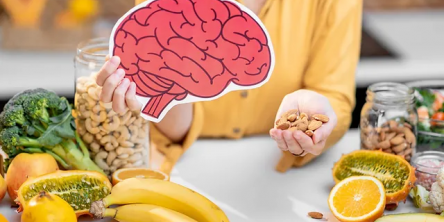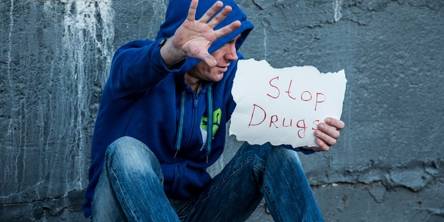Fear of Death

Death anxiety, or the fear of death, is the persistent, abnormal fear of dying, whether it is the expected event of death, the process of death and dying or a general fear of one’s own nonexistence. People who have death anxiety describe the feeling as a constant sensation of intense dread, existential apprehension and the terrible knowledge of the inevitable, of the “ceasing to be” that happens once death occurs. . Although death anxiety is not considered a psychological disorder and is not included in the DSM-V, it is capable of severely impairing a person’s quality of life. The typical individual suffering death anxiety experiences life as a constant struggle against the fear of life coupled with feelings of despair, panic and meaninglessness. Even people who adhere to a strong religious faith can experience death anxiety, although though their faith may be supported by the promise of an afterlife, reunion with dead loved ones and eternal peace. Because religious people can suffer from fear the death, psychologists consider death anxiety to be more than just an existential anxiety about death and treat it as originating from a lack of self-identity, low self-esteem, personality disorders or post-traumatic stress disorder.
What is the Fear of Death Called?
Thanatophobia is the term Sigmund Freud used when talking about the fear of death. In Greek mythology, Thanatos was a god-demon of non-violent death. His sisters, the Keres, ruled the world of violent death and were responsible for deaths caused by disease and slaughter. In ancient Greek art, Thanatos is drawn as an older, bearded man with wings and sometimes as a beardless young man. According to Freud, thanatophobia was not exactly what people feared because he thought that nobody sincerely believed they would ever truly die, or cease to be. Instead, he considered the constant fear of death as representational of a deeper psychological issue concerning the inability of the unconscious to cope with negations and the passage of time. Ultimately, people who came to Freud suffering from a phobia of death and dying were told they had unresolved conflicts from childhood that needed confronted and explored. However, we now know that psychoanalysis is somewhat flawed and that childhood trauma is not the root of all adult psychological issues.
Necrophobia Definition
When someone is clinically diagnosed with a fear of death, they have necrophobia, or an irrational fear and anxiety regarding dead things–corpses, tombstones, coffins, funerals, dead animals, skeletons, etc. When exposed to anything that reminds them of death and dying, a true necrophobic experiences symptoms of a panic attack: rapid breathing, heart palpitations, profuse sweating, shaking, nausea, and overwhelming feelings of dread. Most people with necrophobia (not death anxiety) have suffered a traumatic experience in their childhood centered on something death-related, such as being forced to attend a viewing of a dead relative, watching a person or animal die (in a car accident, for example) or hearing adults talk about “bad” people dying and suffering in Hell for eternity. Necrophobia, as well as many other phobias, can be treated using a combination of counseling therapy and anti-depressant medications. Psychologists primarily employ cognitive behavioral therapy, relaxation techniques, and exposure therapy to help people cope with a death phobia. (Note: Necrophobia should not be confused with necrophilia, a serious, psychotic disorder affecting people who are sexually aroused by dead bodies).
Why Do People Have Thoughts of Death?
Most children, adolescents and 20something adults do not think about death because they are young, optimistic and healthy. As we age and realize that we are aging (gray hair, birthdays, friends and family members dying, having children, memory problems), the knowledge that we are not immortal and that death will inevitably occur at some point in our lives increasingly creeps into our everyday thoughts. In addition, aging often evokes a sense of regret and bitterness in people who start thinking in “could have, should have” terms regarding their life choices. Consequently, the end of existence is viewed as something to be feared, something that will not allow a life to be fully realized before its time. Essentially, being “scared of death” to some people is simply being frightened of having wasted their lives or not finding the meaning to existence that all humans seek.
Types of Death Anxiety
Psychiatrist Robert Langs is an expert on death anxiety and has written about two specific types of death anxiety: predatory death anxiety and existential death anxiety. Predatory death anxiety involves the fear of being harmed by another, whether human or animal, and may manifest itself in other phobias, such as agoraphobia or acrophobia. Existential death anxiety is the awareness of one’s own mortality and is considered by most psychologists to be the most powerful form of death anxiety. However, humans have adapted to the constant presence of death and their own mortality by developing defense mechanisms to prevent death anxiety from overwhelming their daily lives. Denial, intellectualization and engaging in risky behaviors are just a few of the behaviors humans unconsciously depend on to protect them from experiencing a powerfully intense, potentially immobilizing fear of death.
How to Overcome Fear of Death
While necrophobia can usually be helped through counseling and medication, overcoming the simple fear of death is something that each person needs to learn how to do on their own. Since fearing death essentially means fearing loss of control, loss of being, loss of consciousness, leaving behind loved ones and fearing what happens after death, people should strive to develop a healthy perspective of death by exploring their deepest beliefs about life and the “big question”–why am I here? Living for the moment instead of living in the past or the future can help people value life more by allowing them to focus on what is happening to them now. Exploring various philosophical and religious concepts may help people with death anxiety discover a belief system that is satisfying, meaningful, and comforting. Reading scientific and spiritual material concerning life, death, the origins of the universe, the natural world, and even investigations about the possibility of life after death (near-death experiences) can also assist those in overcoming fear of death.
Final Thoughts On How to Not Fear Death
Occasionally thinking about death and feeling afraid of death is a normal part of being a finite human. Everybody feels some level of fear at the thought of non-being, even those who believe in an afterlife. However, living life to its fullest, embracing positivity, practicing compassion and endeavoring to do everything you have ever wanted to do can perhaps provide the sense of meaning and fulfillment the human psyche needs to come to terms with its own mortality.
Similar Articles
There are so many benefits if we have strong stamina as stamina plays an important role in our healthy life activities. There are many ways to better our stamina as Ayurveda provides herbs, remedies, and exercises to improve stamina in natural ways.
Discover the transformative power of individual therapy in substance abuse recovery. Explore the profound impact on personal healing and recovery journeys.
Anatomically speaking, the most common definitions of the brain suggest it to be one of the largest and most complex organs of the human body made up of billions of cells called nerve cells or neurons which transmit electrical and chemical messages to each other via synapses and which in turn, is responsible for integrating sensory information and directing motor responses.
Cold sores are the worst blisters caused by herpes simplex type 1 virus. If you have ever had them, you can feel the pain to date. Cold sores fully develop and vanish within two weeks. These are also called fever blisters.
The hairs are the most important part of your personality. It doesn't matter if your life is perfect or not but you can be perfect if you have flawless hair. Hairs give you confidence as a great hairstyle is the best accessory. There are some quotes on hair as well like “When she flips her hair the world sees her shine”.
Addiction, a complex and multifaceted condition, affects individuals in uniquely personal ways.
More and more, telemedicine technology is being used to bring specialised medical treatment, i.e. best online medical consultation, to impoverished areas and groups for whom travel is challenging.
Telecare consultations are remote visits with healthcare experts via video calls and text messaging through authorized platforms. Patients get proper analysis and treatment through online medical consultation. These platforms are safe and convenient. Individuals can get access to various telehealth services through these certified portals.
Learn the differencet between NAD and NADH in this informative guide. Learn their roles in cellular energy and metabolism.









